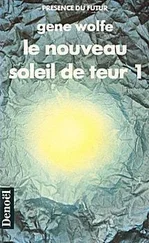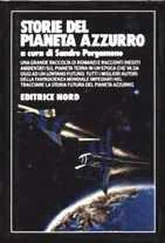Gene Wolfe - There Are Doors
Здесь есть возможность читать онлайн «Gene Wolfe - There Are Doors» весь текст электронной книги совершенно бесплатно (целиком полную версию без сокращений). В некоторых случаях можно слушать аудио, скачать через торрент в формате fb2 и присутствует краткое содержание. Жанр: Фантастика и фэнтези, на английском языке. Описание произведения, (предисловие) а так же отзывы посетителей доступны на портале библиотеки ЛибКат.
- Название:There Are Doors
- Автор:
- Жанр:
- Год:неизвестен
- ISBN:нет данных
- Рейтинг книги:4 / 5. Голосов: 1
-
Избранное:Добавить в избранное
- Отзывы:
-
Ваша оценка:
- 80
- 1
- 2
- 3
- 4
- 5
There Are Doors: краткое содержание, описание и аннотация
Предлагаем к чтению аннотацию, описание, краткое содержание или предисловие (зависит от того, что написал сам автор книги «There Are Doors»). Если вы не нашли необходимую информацию о книге — напишите в комментариях, мы постараемся отыскать её.
There Are Doors — читать онлайн бесплатно полную книгу (весь текст) целиком
Ниже представлен текст книги, разбитый по страницам. Система сохранения места последней прочитанной страницы, позволяет с удобством читать онлайн бесплатно книгу «There Are Doors», без необходимости каждый раз заново искать на чём Вы остановились. Поставьте закладку, и сможете в любой момент перейти на страницу, на которой закончили чтение.
Интервал:
Закладка:
When he had replaced the lamp on the end table, he tried to pry again with the detached board, but the mechanical advantage it had possessed was gone.
There was no convenient crack into which he could force his knife. He worked it beneath the end of the remaining board and wedged the tip of his screwdriver into the opening he had made; as soon as he tried to pry with the screwdriver, it bent like a coat hanger.
He discovered that he did not want to pry with the utility knife because he was afraid it might break. Earlier he had not cared about it and would have thrown it away any time he needed more space in the utensil drawer. Now it was truly his, like his order book and the silver pen whose writing element he had replaced so many times.
He wedged the blade under the other end of the board and made himself work the handle up and down, gently at first, with increasing force as the nails resisted. When he had enlarged the opening between the board and the top of the crate to about an eighth of an inch, he withdrew the blade and pulled up the end of the board, heaving backward again and again, so that one side of the crate was lifted from the floor.
With the top of the crate gone, he could see inside better than he had when the lamp had stood beside the opening. The rough, gray-brown sheet seemed to have been added when the crate was complete except for its top—draped over the rectangular object inside, its margins shoved down into the crate. Yellow mats of shredded wood had been pushed down around it to give extra protection to the sides. He pulled them out, and when the last was gone lifted off the rough sheet, which was only a kind of heavy cardboard, easily enough.
The rectangular object he had felt was the top of the desk, a single dark panel of tropical hardwood. He knew it at once, knew each scratch and honorable mark of service. The fold-down writing board was folded, the drawers taped shut; but it was the desk, his desk.
Somehow, he felt, the sides of the crate should simply fall away now. They did not; he was forced to pry the boards of one side off one at a time and pile them in a corner. It was only when he had removed the last and paused sweating to search once more through the heap of packing materials for Tina, and admire the desk, that he noticed that the masking tape meant to hold the writing board in place hung free. For a second or two he wondered whether Tina could have done it—whether she possessed the needed strength. She probably could, he decided; her tiny fingers could have loosened a corner easily, and with a corner up, she could peel the tape back. He tugged experimentally at the loose end and found the tape had not adhered well; the desk had been waxed.
Mentally, he traced Tina’s path. Finding herself on the thick cardboard sheet, she would have crawled across it just below the remaining boards. The mats of shredded wood would have blocked her at the sides, but she could have—must have —gone down one of the corners. Originally, the cardboard sheet had been flat; it had been bent to fit around the desk fairly tightly, but there had necessarily been a good deal of extra material at the corners. Tina could not have climbed the waxed legs of the desk, but the loose folds of rough cardboard at the corners would have offered her a choice of several easily scaled pipes.
He pulled away the piece of tape. Its makers had provided the desk with a brass lock; but the key had been lost, perhaps for a century or more.
“Here you are, Tina, I’ve found you,” he said as he opened the board.
She was not there. There were eight pigeon holes in the top row behind the board, six larger ones in the bottom row—he had counted them often at the store—and they were empty, all empty except for a single ivory-colored envelope of note-paper size. Thinking that Tina might somehow have secreted herself behind it, he pulled it out. She had not, and as soon as the envelope was out he realized that it would have been impossible. The fourteen empty pigeon holes stared blandly at him; he seemed to hear Tina’s delighted laughter.
Sitting in the old brown chair with the cigarette burn in its arm, he tore open the envelope.
Dear Mr. Green:
Mother gave me an antique doll when I was twelve, and I have been a collector ever since. That’s more than fifty years now. Do you know Kipling’s poem?
There was no worth in the fashion—
there was no wit in the plan—
Hither and thither, aimless,
the ruined footings ran—
Masonry, brute, mishandled,
but carven on every stone:
“After me cometh a Builder.
Tell him, I too have known.”
It was a favorite of my late husband’s.
Merry Christmas. You will pardon an old woman her sentimentalities.
Martha FosterMail. He read the letter again, as though there were some clue there. In cartoons, people were always climbing mountains and asking the robed and bearded freaks they met to explain the meaning of life. He would never be able to laugh at that again. How could anyone laugh? “There was no worth in the fashion—there was no wit in the plan—hither and thither, aimless, the ruined footings ran—”
He picked up the money Tina had found for him, counted it, and stuffed it back into the pocket.
Tina was hiding, but it was only that she was hiding. She was in the desk or in the heap of packing materials and boards, or—barely possibly—she had slipped unseen out of the crate and was hiding somewhere else in the apartment. If he went to bed now, she would probably …
No. Tina might hide briefly as a joke, but not for this long; she would not want to worry him like this. Something had happened to her.
She could not be in one of the drawers because every drawer was still tightly taped. He tore the strips of tape away just the same and looked in all of them. He would have pulled them out of the desk if he could, but they were retained, apparently by stops attached before the back of the desk had been fastened in place.
But Tina had not gotten into any of them, anyway. He was behaving like the man in the joke who looked for his wallet on the corner because the light was better there. Tina had pulled loose the tape that had held up the writing board and slipped behind the board. Was it possible one of the pigeon holes had a false back? All of them were deep, and all looked equally deep, but he checked them one by one with a ruler. They were all of the same depth, and that depth was less than the width of the top of the desk by a scant three-quarters of an inch. There was nothing between the bottom of the lower row of pigeon holes and the work surface of the desk.
Or rather, there was nothing but a smooth panel of nearly black wood about three inches high. He tried to grasp it and pull it, but every edge was covered: the top by the bottoms of the pigeon holes, the ends by the sides of the desk, the lower edge by the fixed part of the writing surface.
He shifted the table lamp to the desk and studied the blank wood. How could Tina, under the thick cardboard sheet, have seen something that he could not see even under a bright light? Tina could only have felt the panel; in the pitch darkness behind the writing board, she could not have seen it. Replacing the lamp, he shut his eyes and traced the panel with his fingers. He felt nothing.
Tina’s fingers were far smaller than his, hardly thicker than pins. He retrieved the utility knife and slid its point lightly across the surface of the panel, careful not to scratch it—or rather, not to scratch it more than it had been scratched already by two centuries of use, particularly, for some reason, on its left end.
When the tip of the blade reached that end, it slipped into the crack between the panel and the side of the desk. He pushed gently and felt rather than heard the click as the panel swung a quarter of an inch toward him.
Читать дальшеИнтервал:
Закладка:
Похожие книги на «There Are Doors»
Представляем Вашему вниманию похожие книги на «There Are Doors» списком для выбора. Мы отобрали схожую по названию и смыслу литературу в надежде предоставить читателям больше вариантов отыскать новые, интересные, ещё непрочитанные произведения.
Обсуждение, отзывы о книге «There Are Doors» и просто собственные мнения читателей. Оставьте ваши комментарии, напишите, что Вы думаете о произведении, его смысле или главных героях. Укажите что конкретно понравилось, а что нет, и почему Вы так считаете.










